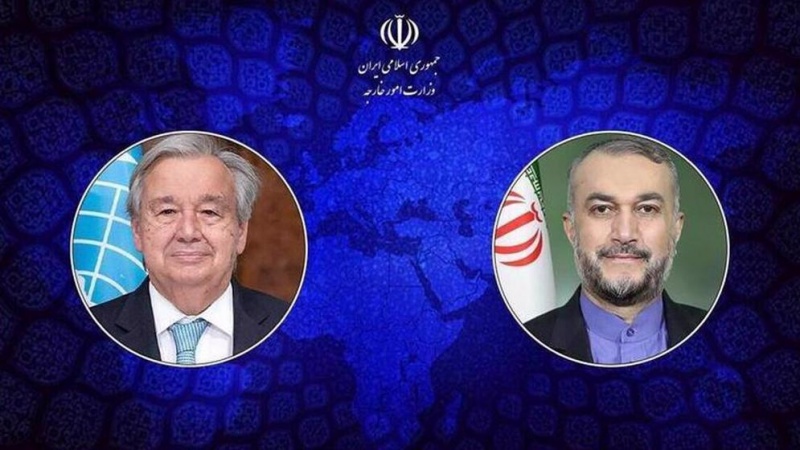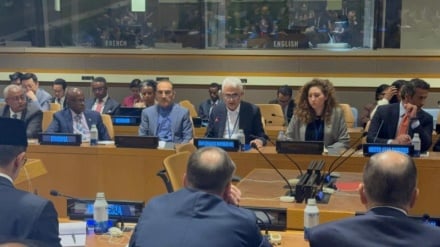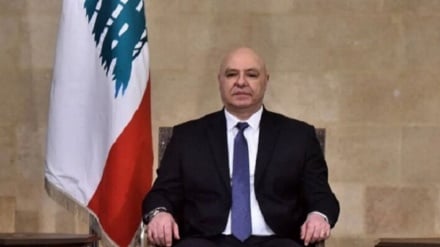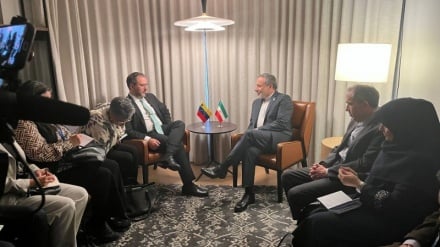UN chief: Humanitarian situation in Gaza ‘catastrophic’, urgent ceasefire needed
United Nations Secretary-General Antonio Guterres has denounced as “catastrophic” the humanitarian situation in the Gaza Strip, underlining the need for an urgent ceasefire and de-escalation of tensions in the besieged territory.
Guterres made the remark in a telephone conversation with Iranian Foreign Minister Hossein Amir-Abdollahian late on Friday as the two discussed the latest developments in Gaza and the United States’ veto of a UN resolution.
The resolution was backed by almost all other Security Council members and many other nations demanding an immediate humanitarian ceasefire in Gaza.
Guterres pointed to the activation of Article 99 of the United Nations Charter, which has not taken place since 1989, saying the measure was adopted due to the complicated situation in Gaza and across Palestine.
“The aforementioned process has been activated as the need for an immediate ceasefire in Gaza is felt more than in the past,” he added.
“A humanitarian pause should be made and the spread of tensions in the region should be prevented.”
Guterres also stressed the necessity of continuing efforts until the realization of Palestinian rights and the formation of a Palestinian State based on the previous resolutions approved by the United Nations.
Article 99 states that the UN chief “may bring to the attention of the Security Council any matter which in his opinion may threaten the maintenance of international peace and security.”
In a move not taken in decades, Guterres invoked the article on Wednesday to notify the UN Security Council about the threat that is posed to international peace and security by the Israeli war.
Amir-Abdollahian, for his part, thanked Guterres for the invocation of Article 99 following the Israeli genocidal war in Gaza, saying, “The use of Article 99 of the United Nations Charter is a brave action on your part to maintain international peace and security, and is supported by the world’s public opinion.”
The Iranian foreign minister touched on the adverse and tragic situation in the besieged Gaza Strip and the displacement of women and children in deserts in southern Gaza in cold winter amid the Israeli war.
Amir-Abdollahian called for speeding up efforts to create deterrence against the Israeli regime’s crimes in Gaza and boosting support for Palestinians by the immediate opening of the Rafah crossing for humanitarian aid and stopping the forced migration of Gazans.
Iran stresses need for immediate stop in Gaza war
In another phone conversation with Ziad al-Nakhalah, Secretary General of Palestinian Islamic Jihad Resistance Movement on Friday, Amir-Abdollahian discussed the latest measures by the Arab and Muslim world as well as the Islamic Republic in supporting the Palestinian people.
The top Iranian diplomat underlined the need for an “immediate and effective” action by the international community and responsible international institutions to stop the Israeli regime’s war crimes in Gaza.
Nakhalah, for his part, expressed gratitude for the Muslim-Arab efforts and those by Iran.
He also presented a report on the latest developments in the Israeli war on Gaza, voicing the Palestinian resistance groups’ full readiness to confront the occupying regime’s barbaric attacks and to defend the besieged strip.
Iran FM, German counterpart discuss Gaza, bilateral ties
In a separate phone call on Friday, Amir-Abdollahian and German Foreign Minister Annalena Baerbock discussed the latest developments in the Gaza Strip in addition to Tehran-Berlin relations.
The top Iranian diplomat pointed to the continuation of the Israeli killing of Palestinian civilians in Gaza and the occupied West Bank, emphasizing the need for the international community to pay special attention to the human rights-related issue.
Condemning the Israeli genocide in Gaza, Amir-Abdollahian described holding a UN referendum among the original residents of Palestine, including Christians, Muslims and Jews, as a political solution to the decades-long conflict.
Amir-Abdollahian also pointed to the cultural and historical links between Iran and Germany, saying, “Mutual respect and focus on shared interests are necessary to maintain and strengthen relations in various fields, and within this framework, the Islamic Republic of Iran welcomes the expansion of relations between Tehran and Berlin.”
Baerbock, for her part, underlined the necessity of preventing the expansion of the scope of the humanitarian crisis in Gaza.
Calling for Iran's assistance to reduce tensions in the region, the German foreign minister stressed the importance of maintaining the dialogue channel to help strengthen bilateral cooperation.
SS



